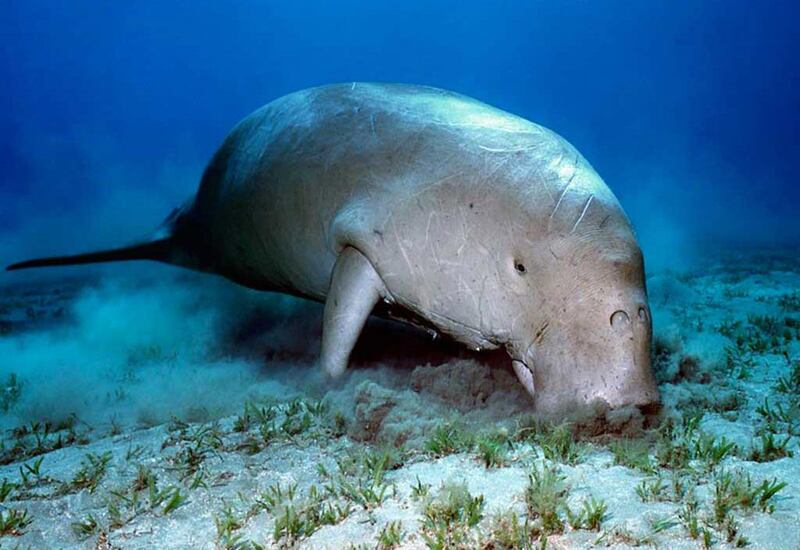MIRFA // The dugongs that live in the waters around the UAE enjoy a protected life, with harsh punishments for anyone caught hunting the gentle mammals.
In the past, the animals, which can weigh up to 300 kilograms, had been an important source of protein for fishermen.
“Dugong meat was still on sale in Abu Dhabi fish market until, I think, the late 1970s,” said Dr Mark Beech, head of coastal heritage and palaeontology at Abu Dhabi Tourism and Culture Authority.
Findings at an archaeological site on the island of Marawah have shown the relationship between man and dugong was well established by the late Stone Age.
“The interesting thing in Marawah is that we found dugong scapula and ribs,” Dr Beech said.
The remains were found to be 7,500 years old. Dr Beech said dugongs were most probably killed for food, although the presence of human remains within the building indicated they may have been placed as an offering.
This is not the only piece of evidence pointing to the ceremonial use of dugongs. A 40-centimetre mound containing the remains of about 40 animals was found on the island of Akab in Umm Al Quwain.
More than 6,000 years old, the dugong remains were part of a complex and intentional arrangement. Skulls were found aligned in rows facing east, while bundles of ribs painted with ochre dye were laid in front of the first row of skulls.
The late Islamic period graveyard near Al Ghubba village on Marawah also points to the ceremonial significance of dugong remains.
During a survey in 1992, scientists found graves that had been dug between the 16th and 18th century. Two of them had dugong remains placed beside them. This, said Dr Beech, was a variation on traditional Islamic practice that relies on simple grave markers for headstones.
Dugongs were hunted by fishermen until the last decades of the 20th century.
Dr Himansu Das, unit head for marine threatened species and habitats at the Environment Agency Abu Dhabi, said: “Legally it is prohibited to exploit dugongs and other marine wildlife such as whales and sea turtles in any form.”
One of the reasons the waters around Marawah were declared protected was to preserve its extensive seagrass beds, which provide food for dugongs. About 1,600 of the animals live in the area, Dr Das said.
vtodorova@thenational.ae
______________________________________________________________
Read more in our series:
■ Marawah marine biosphere reserve is protected and preserved





